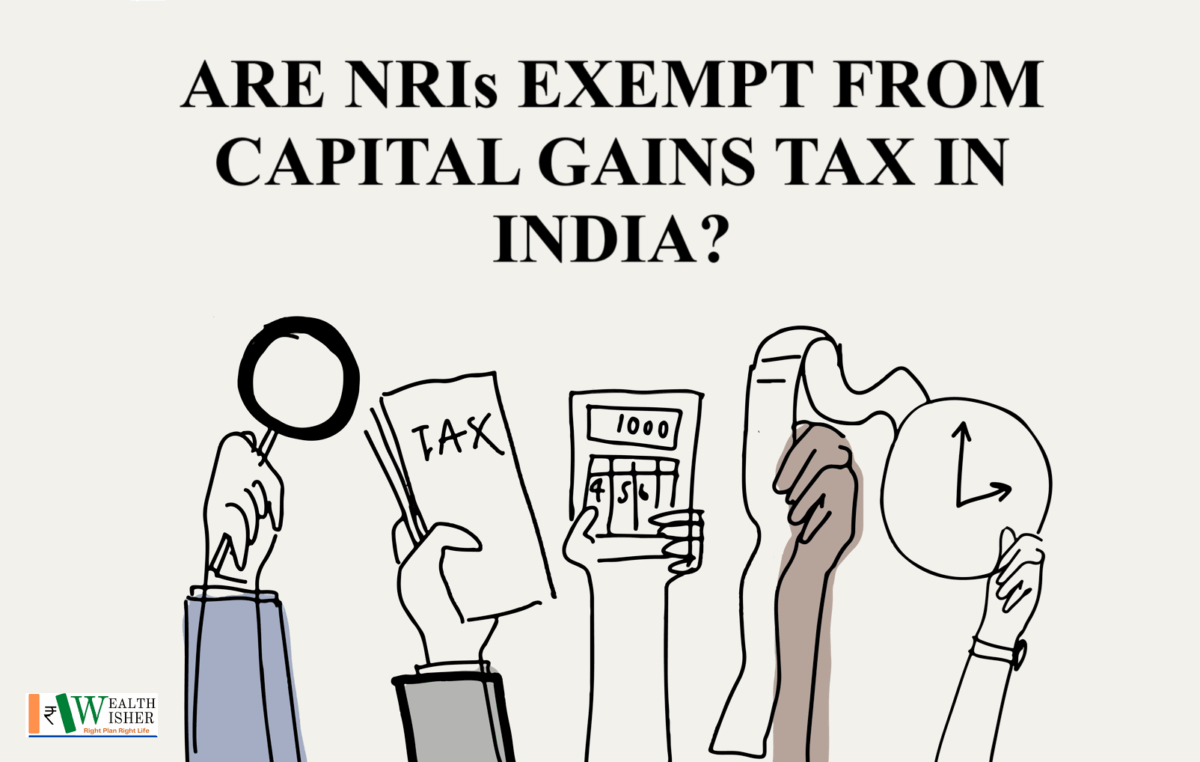Many Non-Resident Indians (NRIs) often find themselves confused about their tax obligations in India, particularly when it comes to capital gains arising from investments in mutual funds or through Portfolio Management Services (PMS). Who does not prefer a tax-free income? Are NRI Exempt from Capital Gains Tax in India? Let us check this today.
A recent development by the Income Tax Appellate Tribunal (ITAT) in Mumbai has brought some clarity to this matter, particularly regarding investments in mutual funds. Let’s break down what this means and how it affects NRIs, depending on their country of residence and the type of investment they choose.
Capital Gains Tax Basics for NRIs
Capital gains tax in India applies to profits earned from the sale of capital assets, such as mutual fund units, shares, or property. The tax is categorized into:
- Short-Term Capital Gains (STCG): Taxed if the asset is held for less than a specified period. The time prescribed is less than one year.
- Long-Term Capital Gains (LTCG): Taxed at a lower rate if the asset is held for a longer duration. More than a year holding period.
For NRIs, this taxation can get more complex due to international taxation rules, especially those governed by Double Taxation Avoidance Agreements (DTAAs).
DTAA – A Tool to Prevent Double Taxation 
India has signed DTAAs with over 90 countries, including the UAE, Singapore, Mauritius, and the Netherlands. These treaties are designed to ensure that taxpayers are not taxed twice—once in their country of residence and again in India—for the same income.
If an NRI resides in a country that has a DTAA with India, they might be eligible to avoid paying capital gains tax in India—but there are conditions. A crucial one is that the NRI must submit a Tax Residency Certificate (TRC) from their country of residence. This document proves that the individual is a tax resident of the foreign country and qualifies for DTAA benefits.
DTAA in detail: Link Here
Recent Clarification: Mutual Funds Get Special Treatment
Making NRI Exempt from Capital Gains Tax in India
A landmark ruling by the ITAT in Mumbai has shed light on how capital gains from mutual funds are treated for NRIs under DTAAs. The tribunal stated that mutual fund units, being structured as trusts, fall under the ‘residual clause’ in many DTAAs.
The ‘residual clause’ typically gives the exclusive right to tax such income to the country where the investor resides. This means if an NRI lives in a DTAA country and earns capital gains from mutual funds in India, then those gains may be taxable only in the country of residence, not in India. Hence NRI is Exempt from Capital Gains Tax in India.
For instance, if an NRI is living in the UAE—which has a DTAA with India—and earns returns from redeeming Indian mutual fund units, NRI Exempt from Capital Gains Tax in India.
Better still, if the country of residence like the UAE or Singapore doesn’t impose capital gains tax either, the investor ends up paying no tax at all on those gains. This creates a highly tax-efficient structure for NRIs to invest in Indian mutual funds.
But TDS Still Applies
Even if the capital gains are not ultimately taxable in India due to the DTAA, Tax Deducted at Source (TDS) is still applicable. Typically:
- 30% TDS is levied on dividend income and redemption proceeds for NRIs.
However, investors can claim refunds for this TDS by filing their tax returns in India, provided they qualify under DTAA terms and submit the necessary documents, like a TRC.
What About PMS Investments?
Now comes the important distinction—this tax exemption under DTAA does not apply to Portfolio Management Services (PMS). Here’s why:
- PMS investments involve the direct purchase of stocks in the client’s name.
- Unlike mutual funds, PMS does not operate through a trust or unit-based structure.
- Therefore, capital gains from PMS are treated just like gains from direct stock investing, which do not benefit from the same DTAA residual clause.
So, regardless of where the NRI lives—even if in a DTAA country like the UAE—they will still be liable to pay capital gains tax in India on PMS investments.
Any Hope for PMS Investors?
Yes—there is one exception. If NRIs invest in PMS through the GIFT City (Gujarat International Finance Tec-City) platform, there may be tax benefits available. GIFT City offers a special regulatory framework, and investments made through this route may qualify for tax exemptions or reduced taxation, subject to certain conditions and structures.









Leave a Reply